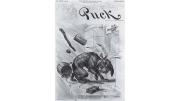Glass Half-Broken: Shattering the Barriers That Still Hold Women Back at Work, by Colleen Ammerman and Boris Groysberg (Harvard Business Review Press, $30). The director of the Business School’s Gender Initiative and the Chapman professor of business administration explore why women, a majority of the college-educated U.S. work force, are not yet fully represented in leadership positions. Lest anyone try to evade responsibility, they point to “the most underutilized weapon in the battle against gender inequity: men.”
Digital Body Language: How to Build Trust and Connection, No Matter the Distance, by Erica Dhawan, M.P.A. ’12 (St. Martin’s, $28.99). The author, a management adviser, offers how-tos aplenty for making digital communications—Zoom/email/texting/etc. (which will persist post-pandemic)—effective, in the way in-person body language can be. For example: how to “combat digital mansplaining.” The institutional counterpart is, in part, the subject of The Power of Trust: How Companies Build It, Lose It, Regain It, by Sandra J. Sucher, M.B.A. Class of 1966 professor of management practice, and Shalene Gupta, research associate, at the Business School (PublicAffairs, $30). Communications matter, but for companies, trust (making yourself “vulnerable to the actions of others”) depends on their content: quality products and services, acting on good intentions, treating folks fairly, and taking responsibility. Easy to say, hard to do.
Rebellion, Rascals, and Revenue: Tax Follies and Wisdom through the Ages, by Michael Keen and Joel Slemrod, Ph.D. ’80 (Princeton, $29.95). A surprisingly entertaining guide to tax policy, successful and not, by a tax expert at the International Monetary Fund (Keen) and an economist who wears many hats at the University of Michigan. When Peter the Great imposed a tax on the nobility’s beards in 1698, hoping to encourage them to get with his modernization program (i.e., to shave), he foreshadowed, dare we say, the intended outcome of a twenty-first-century tax on carbon emissions. Timely, given current debates in Washington.
Australian Bush to Tiananmen Square, by Ross Terrill, Ph.D. ’70 (Hamilton Books/Rowman & Littlefield, $24.99). A chatty memoir by the author (800,000,000: The Real China, Flowers on an Iron Tree, et al.), academic Sinologist, policy adviser—and former Harvard faculty member and research associate. The chapter on “Tiananmen Square and Harvard Square” interestingly juxtaposes the late 1960s PRCs: the People’s Republic of China and its Lilliputian counterpart, the People’s Republic of Cambridge, in the throes of a different kind of cultural upheaval.
Maverick: A Biography of Thomas Sowell, by Jason L. Riley (Basic Books, $28). An admiring, journalistic overview of the work of economist and social theorist/commentator Sowell ’58, now of the Hoover Institution, by a Manhattan Institute senior fellow who appears to share his subject’s critiques of Keynesian economics, the civil-rights movement, and other matters. The review of Sowell’s other work, on the history of ideas, may invite some new readers to dip into a vast oeuvre.
Conversations with Donald Hall, edited by John Martin-Joy ’83, Allan Cooper, and Richard Rohfritch (University Press of Mississippi, $25 paper). A collection from the nearly 170 interviews Hall ’51, JF ’57, granted—about his poetry, life with and loss after the death of his wife, Jane Kenyon, and aging. Hall, once poetry editor of this magazine, polished the transcripts, the editors says—both preserving their character and enhancing their value as they make his points clearly. Their interest extends beyond literary scholarship: “When I was in my twenties,” he said, “I had goals; when I reached them, they turned out to be not worth reaching.”
Rich Thanks to Racism: How the Ultra-Wealthy Profit from Racial Injustice, by Jim Freeman, J.D. ’03 (Cornell, $29.95). A lawyer who directs the Social Movement Support Lab at the University of Denver levels a furious attack on “strategic racism” and “racism profiteers” across the spectrum (from prominent conservative business leaders to CEOs of new-era technology corporations), who, he argues, have undermined public education, promoted mass, race-based incarceration, and more, in pursuit of private gain.
Who Will Pay Reparations on My Soul? by Jesse McCarthy, assistant professor of English and of African and African American studies (Liveright/Norton, $27.95). At a time when cultural criticism can seem pedantic and remote, McCarthy—widely read, widely curious—does a lot to restore the essay to a place of honor. He doesn’t take it easy on anyone, either: for example, in the usage and style note up front, he pointedly declines to capitalize “black” in his writing—because, he notes, the exemplary Toni Morrison, Litt.D. ’89, didn’t either. The pieces about novelist Colson Whitehead ’91 and scholar-poet Frederick Moten ’84 originated in these pages.
The End of Asylum, by Andrew I. Schoenholtz, J.D. ’86, Jaya Ramji-Nogales, and Philip G. Schrag ’64 (Georgetown, $22.95). Three legal scholars, from Georgetown and Temple, critique the Trump administration’s assault on the bipartisan system of asylum—enacted in 1980, grounded on international standards, and through which refugees are recognized and protected—as part of its larger policies to restrict immigration. A succinct policy brief, it urges repeal of the Trumpian project and reform of asylum that “cannot b dismantled by an ill-intentioned executive branch,” lest the United States relinquish its central role as “a safe haven for those who are forced to flee from persecution.”
Escape: One Day We Had to Run, by Ming (Deming Chen ’92, M.B.A. ’98) and Wah (Chen) (Lantana, £12.99, or $17.99 online). A nonfiction picture book for children documenting people in flight, around the world, from war, famine, and other evils.

Beau Brummell—caricatured by Richard Dighton (1805)—when he was an icon of understated attire.
Dress Codes: How the Laws of Fashion Made History, by Richard Thompson Ford, J.D. ’91 (Simon & Schuster, $30). An original, dazzling world history of clothing, seen through the law (the author professes at Stanford Law). It begins with the 1797 arraignment of John Hetherington, haberdasher, in London, for breach of peace and inciting to riot for appearing in public wearing “a silk hat…a tall structure having a shining lustre, and calculated to frighten timid people.” Ford interprets civil-rights activists’ choice of overalls, “flapper feminism,” and more. “Fashion may not help us fight the enemies of humanity,” he concludes. “But it gives us a glimpse of what we’re fighting for.” Dandy illustrations throughout.
The Unlikely Art of Parental Pressure, by Chris Thurber ’91 and Hendrie Weisinger (Hachette Go, $17.99 paper). Thurber, a psychologist and instructor at Phillips Exeter, and Weisinger, a psychologist and author, combine forces to probe a “positive approach to pushing your child to be their best self” (their subtitle). They are witness to a “pressure pandemic” (Exeter or Harvard, anyone?), and hope to encourage de-escalation (the pressure is “bad, but you’re not”) without unilateral disarmament (they focus on “how parents apply pressure, not how much”).








